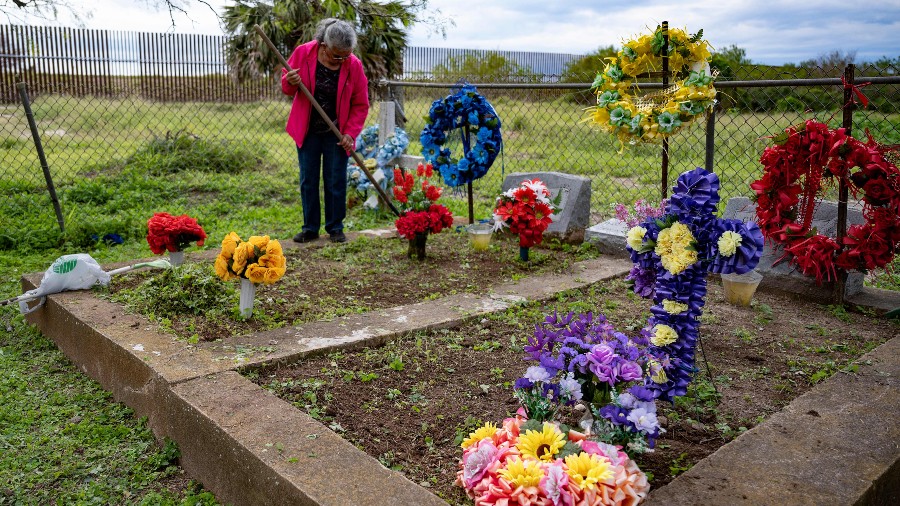Backyard family burial legislation passes WA House floor
Feb 28, 2023, 10:26 AM | Updated: 10:35 am

House Republican representative Jim Walsh sponsored House Bill 1037, which would legalize family burial on private property. (Photo by Jim Watson/AFP via Getty Images)
(Photo by Jim Watson/AFP via Getty Images)
Why spend thousands at a local cemetery – when you can bury your loved ones in your own backyard? With the Washington Legislative session now in full swing, new laws are being proposed to allow people to bury relatives in their backyard.
House Republican representative Jim Walsh sponsored , which would legalize family burial on private property. This changes the state’s , which requires all burials to be done by registered cemetery corporations “unless otherwise limited by the law.”
More states continue to legalize human composting for burial
In his introduction of the bill to the House floor for debate, Walsh argued that the legislation would provide important changes that would allow traditional burial practices, provide possibly cheaper alternatives to paying for a burial plot in a cemetery, and would help provide more regulation to private burials that may already be occurring in the state.
Walsh says that the bill was first brought to him by some tribal members of his district and is an important part of allowing people the right to use their private land for such an intimate and personal family ritual.
“It is a tradition in some parts of our state that this was the way people took care of their family members, interred them. And its kind of gotten lost in some recent legislation,” Walsh said. “So really, this is a clarifying bill that this practice can go on around the state within certain parameters. To assure public safety and health and really restricted to family members. This is not a situation where these family plots would become any sort of commercial venture.”
Regulations in the bill still require that private burials not be done for profit. It also has regulations in place that would require homeowners to register the final resting place of their loved ones in their family burial plots and require them to disclose any burials on the property to potential buyers.
Julie Barrett, the founder of Conservative Ladies of Washington, attended the introduction of the bill and spoke in favor of it, saying that the bill was important to protect the private rights of landowners and provides more information about confusing regulations around the practice of family burial plots which she said that members of their group had been having.
“This bill gives clarification to existing law. Property owners around the state have been getting confusing information from local authorities, especially in regard to family plots that they have been using for generations. It is important that Washington lawmakers protect the privacy rights of property owners, and this bill does just that,” Barrett said. “Washington property owners should have the right to bury immediate family members on their privately owned land.”
Not everyone in attendance at the hearing fully supported the bill, including Paul Jewell, who spoke on behalf of the Washington State Association of County and Regional Planning Directors. Jewell advocated for more concrete information on how the state would continue to regulate how burials affected local ecosystems, water supply, and city planning and development.
“Ground disturbance and those areas can really affect the functionality of those natural processes,” Jewell said. “We want to make sure that there’s little or no risk for contamination as well for water quality and other ecosystem issues.”
While Jewell was not against the bill, he did advocate for more specific language regulating the burials in the interest of public health and public works before the bill is passed.
The legislation unanimously passed in the Washington House of Representatives Monday. It now goes to the Senate for further consideration.
“One of the great traditions of living in the West is the ability to bury your family, and when the time comes yourself, on land that you or your family owns,” said Walsh. “Doing so was commonplace in the early years of our state. But in recent years it has become less clear in the law whether it’s legal at all. Really, this is simply a clarifying bill ― within certain parameters ― that allows those long-held traditions to continue.”
Matt Markovich contributed to this report














